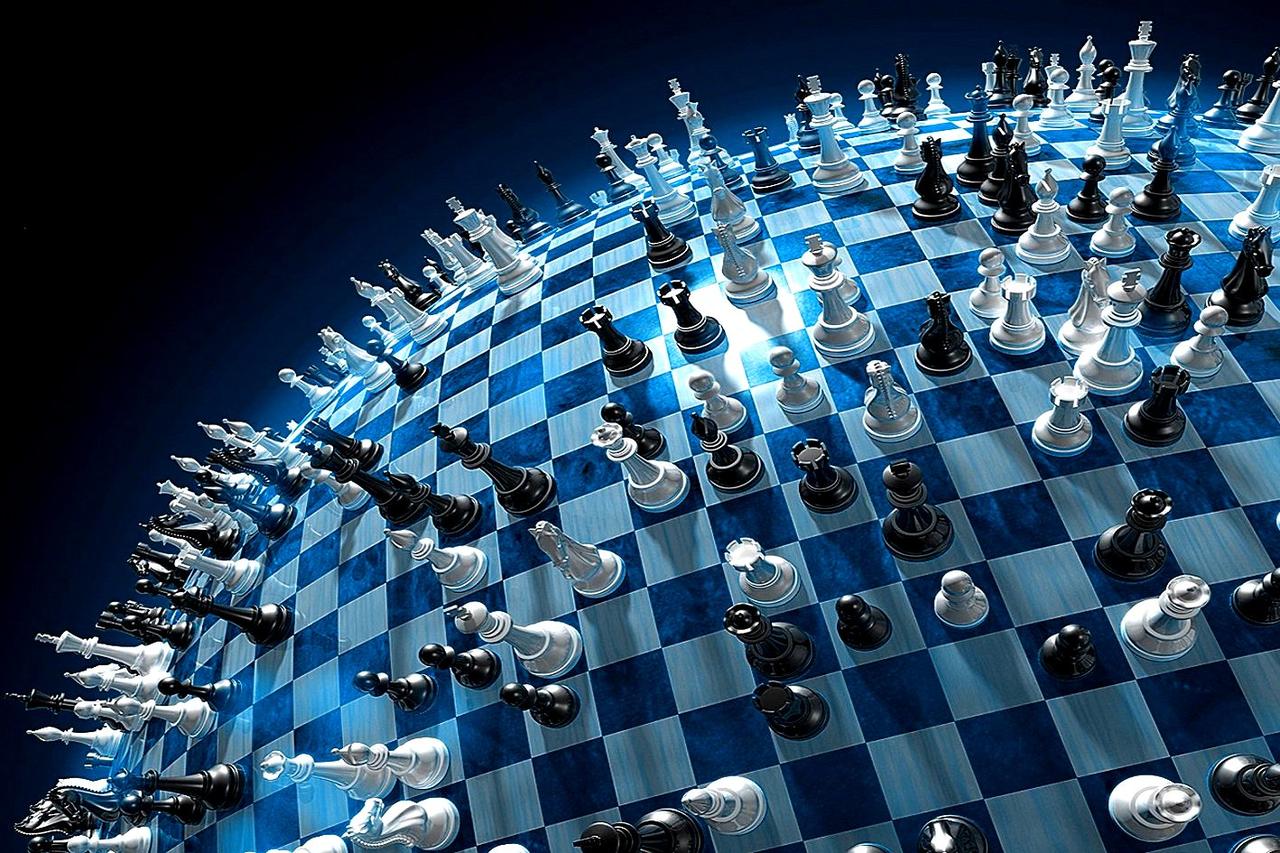Submitted by Michael Every of Rabobank
Chess, Mate
I presume most readers have played chess at one time or another, or at least watched someone doing so. Most games start with a little positioning and then a trade of pieces as both Black and White set themselves up to win the game. Occasionally, however, a game develops with no pieces being taken. I don’t mean so-called ‘Fool’s Mate’ or ‘Scholar’s Mate’, both games where one side can beat the other without any pieces being lost on either side. Instead I mean a game where both sides play primarily defensively. In that scenario almost all pieces are brought into play, yet neither side is prepared to start the avalanche of taking and counter-taking that will inevitably follow when just one small pawn is exchanged. That tense backdrop, where both nothing is happening and yet everything is very close to happening, is clearly where we stand globally today.
On one level the two players are the US and China, and everyone else, willing or unwilling, are their pieces as we head towards this week’s crucial G20 sit-down on 28-29 between Trump and Xi. As we have kept repeating here, this pow-wow is not about tariffs. It’s not even about trade. It’s about who is going to win this Great Game, and how. The economy is just one, crucial, part of a far larger struggle.
That’s certainly how China now sees it now, if it ever didn’t, and how US hawks also envision it. As such, as in chess, once a piece is moved–tariffs in this case–one can’t just move it backwards without throwing away significant tactical advantage. China is demanding just that as a precondition for any deal, and the US is most unlikely to respond. As such, perhaps the very best markets can hope for is more patient delay and position building at the G-20 that at least sees the US and China refrain from any further escalation. Yet even that is not guaranteed as the US has just added another five more Chinese firms to its tech-export blacklist on national security concerns, this time aimed at stifling China’s attempts to develop supercomputers.
Meanwhile, lots of other global pieces are coming into play all at once. We were 30 minutes at most away from US military strikes on Iran last week, an outcome that would have risked a rapid escalation into very dangerous scenarios. Fortunately, US President Trump decided that killing 150 Iranians was disproportionate to one drone’s downing, and has underlined again that he is prepared to be a great friend to the Iranians if they will only abandon their target of holding nuclear weapons. However, Trump is going to escalate his economic strategy with a further “significant” increase in US sanctions on Tehran today, with the threat of military “obliteration” still in the background. In turn, expect Iran to keep trying to show the US that it can make life difficult on other parts of the board in response. It is, as I said, a very tense situation with no clear resolution obvious.
Likewise, in North Korea we have seen China’s Xi meet Kim with all fanfare, and the outcome is still unclear – though Korea observers suggest that the two may be moving to stand united against the US rather than Beijing helping Washington DC on the nuclear issue. Of course, Trump has also sent a personal letter to Kim, indicating that he very much wants to turn this pawn into a queen.
In Turkey we have the S-400 missile and F-35 stand-off, which could yet see the US impose crippling sanctions. Moreover, CHP opposition candidate Imamoglu convincingly won the re-run of the mayoral elections in Istanbul held on Sunday, obtaining 54% of votes. The ruling AKP party’s Yildirim–a former PM and a close ally of President Erdogan–received 45%. The margin of Imamoglu’s victory is substantially higher compared to the March 31 vote. The key question is whether the Erdogan administration moves on and focuses on urgently required economic reforms (and foreign policy issues) or intensifies efforts to prevent Imamoglu from using his mayorship to build a much stronger political momentum to challenge Erdogan and the AKP for power in the 2023 parliamentary and presidential elections. We have a low conviction that bold reforms will be implemented after Treasury and Finance Minister Albayrak did not provide concrete details of his economic programme in April. The S-400 and F-35 issues are even more pressing.
Of course, Russia, the EU (and Italy), Brexit, Venezuela, Saudi Arabia, Hong Kong, etc., are also all still ‘in play’ too – and a development on their part of the board can flow through to the overall game in a crucial manner.
When one puts all of this together then there is also another way of looking at this chess game. One of the players is geopolitical risk, and the other is central banking. Every time the former makes a dangerous move, the latter tries to counter. So far that has meant that the pre-GFC trading strategy of “Just buy everything!” has continued to offer rich rewards. However, we are arguably approaching a point where geopolitics is likely to overwhelm central bankers. How does one match Gulf War 3 with a 50bp cut, for example?
A third way to think of the chess match is over the future of the USD: is it going to remain King Dollar or find itself in check-mate?
via ZeroHedge News http://bit.ly/2X0NbXF Tyler Durden
